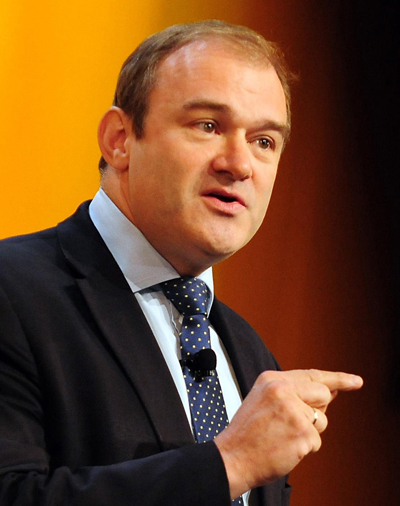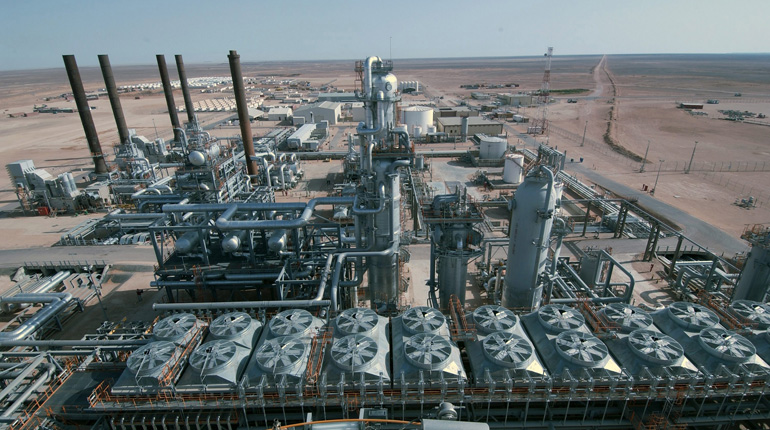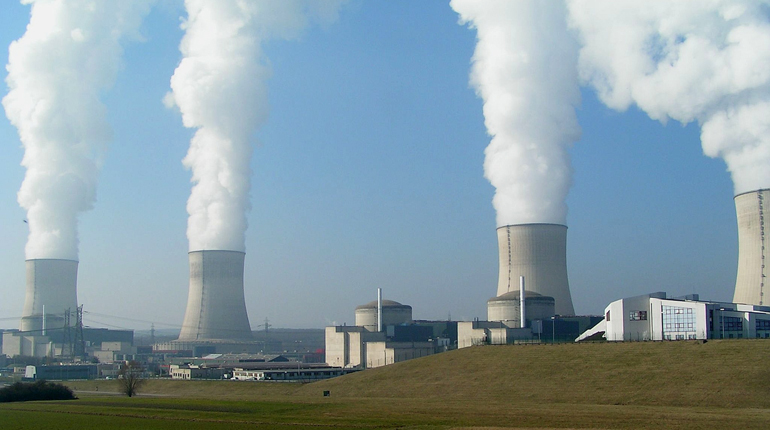Former UK energy minister lambasts poor policy
 Peterhead CCS project (Shell)
Peterhead CCS project (Shell)
Sir Ed Davey is the UK’s former secretary of state for energy and climate change and is now an independent energy consultant and adviser. In this excerpt from his interview with GGA, Davey gives his views on the recent setbacks for carbon capture and storage (CCS) in the UK and the importance of gas in the UK and European energy markets.
GGA: In November last year, the government scrapped a £1 billion fund for a CCS pilot competition. What are your views on the decision and what does the government need to do to get CCS back on track?
Ed Davey: Let’s start with the decision. The Conservatives’ decision to pull the funding was not based on evidence: it was irrational. It is difficult to understand because the evidence, such as we had it, suggested the two pilots could have gone ahead. For these types of investments, the state should work with the private sector to tackle long-term strategic problems. The advantage of pulling off commercial CCS would be dramatic for our world, because it would be a cheaper way to tackle climate change, and for the UK because we would steal a lead – particularly in gas-to-CCS. The government hasn’t produced evidence to say the reasons were wrong – the reasons are, if anything, greater.
Their rationale was probably the fact that consumers pay for low carbon [investments] and they are worried about energy bills rising. I have sympathy with that. I have never argued for unconstrained investment in low carbon – you have to have budgets to protect consumers. The question is, what is the right size of budget? The government says the levy control framework – the budget for this low carbon – is overspent, when it knows it is not. The fact that it refuses to publish its calculations and the assumptions behind its calculations is quite good evidence there’s actually still room in the budget – the lack of transparency speaks volumes.
Just look at what we do know about this budget: there was a 20% contingency for the levy control framework that should kick in if gas prices are lower than expected when [the framework was set] to protect its long-term purchasing power. And gas prices are indeed now lower than expected, so the contingency should have kicked in – except the government hasn’t allowed it to. So it is cutting a budget against how it was set.
Secondly, it will not say publicly what assumptions it has made in its budget calculations about how many low carbon projects will be completed. I have it on very good authority that the government’s assumption is that every single project that has a Renewables Obligation Certificate, a feed-in tariff or a contract for difference will get built. That is a ludicrous assumption that defies history and common sense. So if one or two projects don’t complete, that leaves room in the budget.
Additionally, the impact of lower wholesale prices is greater than the impact of continuing to spend on the levy control framework. Yet, although the economics have improved, the government is cutting this long-term low carbon investment: that’s irrational. It is the rule of the tabloid headline, not the mind.
So, that is where we are, but where do we go now in the UK? Where does the world go?
The UK has a lot of intellectual property, both in those two projects but also – just as importantly, and completely undervalued – in the R&D we supported. We need to build on that, not just by simply spending on innovation – we need to deploy projects.
I think a promising area, which might be cheaper than CCS, is carbon capture and usage [CCU]. The problem with CCU is none of them by themselves will actually solve the problem because there will be a finite market for their carbon products and there are quite a lot of emissions to get rid of. But, if we can develop the science and a suite of CCU products, then let’s do it.
I think the only way forward for CCS in the UK is for a government agency or delivery arm to be set up. Having the state in the driving seat would be a second-best solution. We had the best solution and the government has just destroyed it.
 Sir Ed Davey is former UK secretary of state for energy and climate change 2012-2015
Sir Ed Davey is former UK secretary of state for energy and climate change 2012-2015GGA: What can the UK learn from CCS projects elsewhere?
ED: We should learn from elsewhere. However, in other countries there have been utility models or state agency models. They are not developing CCS in any way that really understands how you can commercialise it. I don’t think we will get there quick enough if we just throw money at it through state bodies or utility models, which is another reason why what has happened in the UK is such a tragedy.
GGA: What about the prospects for internationally supported and EU-level CCS projects?
ED: There is the argument that we should do some kind of international collaboration. We have looked at this before. The UK government needs to talk to other producing nations, such as Russia and Qatar. CCS is in their long-term interests.
Our thinking in DECC on decarbonising heat was world leading. We did a major piece of work with seven different sectors looking at how they used heat and electricity, called the 2050 Heat Roadmap. There are lots of different options there, but CCS comes out very strong.
GGA: The government is seen as being pro gas, but how important is energy policy to the government?
ED: It rarely becomes the top priority, and when it does it is because there is a crisis, not because there is an opportunity. In my experience, it is absolutely clear: energy policy only becomes an issue when it is a crisis. That is normally when prices are seen to be a big issue.
GGA: There are real concerns about what will happen with gas in Europe. What scale of gas market growth is possible?
ED: Governments have failed the gas industry time and time again because of poor thinking. The abandonment of CCS is yet another bad decision for the gas industry, and the real irony is that the government doesn’t even realise it – this government considers itself to be a gas champion.
I think gas is incredibly important for the UK and for Europe. We will still have gas for heating for quite some time. And if you are setting policy now, you have to keep gas as an option for electricity.
However, the impact of low carbon on wholesale electricity markets is a real and present threat to gas used for electricity. Renewable electricity plants, now coming online in large numbers, are suppressing wholesale electricity prices – they can bid-in low because they have low or zero marginal cost. So the economics of gas in electricity have been really hit by renewables. If you are looking at building a new gas power plant now, it looks like you are never going to get your money back just from the wholesale electricity market.
That is a problem for gas used for CCGTs. There isn’t an easy solution because we have to go green with renewables. So we have to accept that gas as a transition electricity fuel will probably end up getting subsidised more than renewables during the transition. Not many policymakers understand that yet – certainly not the British Conservative government.
GGA: The idea of gas getting subsidies is an interesting one, and one that is not often talked about.
ED: Well, it has to be talked about. It is not that I like subsidies – I was always pleased to cut renewables subsidies. However, gas is going to [need them] – and I am in favour of gas getting subsidies, if allocated via a competitive mechanism like the capacity market. It will be interesting to see if the chancellor of the exchequer is in favour of it in due course, because he was against renewables subsidies.
I have been through the intellectual journey of not wanting to subsidise. There is no point in subsidising something that will never come off subsidies. You might have subsidies that are required for the next 5-10 years, but we are talking about innovations and investments for the next century, or for the next two centuries when it comes to renewables and CCS.
GGA: What about the security of supply of gas in Europe?
ED: The threat isn’t that Russia will turn off the gas – it never was. The threat comes at two levels. The first is that, if Russia can, it will charge premium prices. One of the things about the EU’s development of the concept of an Energy Union is that it can try to help small countries with Russian gas contracts stand up to Moscow and bargain. I fully support that. I don’t believe in an agency to buy gas for Europe – that is a bonkers idea. It would be helpful if Brussels was able to give a bit more support to those contracts and negotiations for smaller member states.
The other threat is more subtle. Whether it is the diversification of gas supplies through pipelines, LNG terminals, reverse flows or connecting the grid so that there are no energy islands, we need the EU’s projects of common interest to make sure we build the right infrastructure. That keeps prices low and gives more security, more confidence. It prevents any one supplier, or one family of suppliers, from being able to exert too much power.
The EU Energy Council was always split – between those countries that worry about energy security and those worried about climate change. I placed Britain in both camps because I think energy security and climate change challenges can be seen as largely the same: what you need to do for climate change – invest in low carbon, renewables and nuclear, and help gas flow more freely – is precisely the same as what you need to do for energy security. Coal is really the only point where they clash.
A sensible gas strategy is great for Europe’s climate change objectives and for Europe’s energy security.
Sir Ed Davey is now an independent consultant and adviser. Through his consultancy, Energy Destinations, he has clients in various sectors of the energy industry. He is also the Chairman of Mongoose Energy, a community energy investment firm, as well as an adviser to several renewable energy companies.



